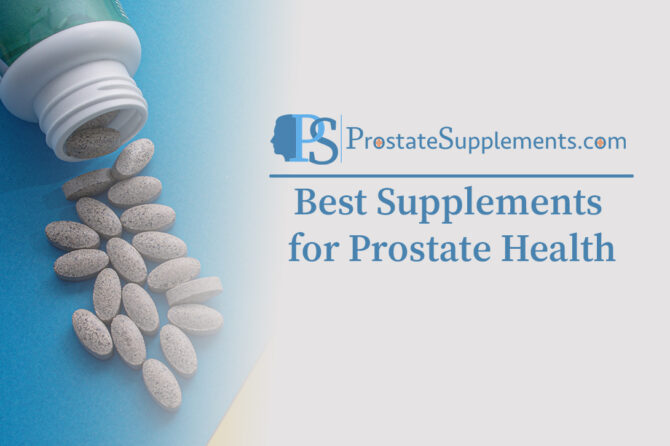
Orchic Extract and Prostate Health: What the Evidence Really Shows
Abstract
Orchic extract—usually marketed as a desiccated bovine testicular (glandular) ingredient—appears in some men’s-health supplements with claims about testosterone, vitality, and even prostate support. A critical review of clinical and regulatory literature finds no high-quality human evidence that orchic extract benefits the prostate or urinary symptoms. Available information consists of product marketing, historical “organotherapy,” and limited animal or mechanistic studies. Safety hinges on sourcing and manufacturing quality (notably compliance with prion-risk rules for cattle materials) rather than on proven pharmacology. Clinicians and consumers should understand the gap between claims and data and consider evidence-based alternatives when managing benign prostatic hyperplasia (BPH) or other urologic concerns.
What is orchic extract?
In contemporary supplements, orchic extract refers to material derived from cow testicles (desiccated “glandulars”). It is promoted for “testicular support” or as a “testosterone source,” but authoritative overviews emphasize that there is no good scientific evidence for these uses.
Note the frequent confusion online between orchic (testicular) and orchid (the plant family); studies on orchid extracts do not apply to orchic extract.
Prostate biology in brief (why claims target it)
Prostate growth and function are androgen-sensitive (testosterone → dihydrotestosterone via 5-α-reductase). Many supplements imply that “supporting testosterone” will translate into prostate or urinary benefits. However, raising testosterone is not a recognized therapy for BPH, and unsupervised androgen manipulation can be counterproductive in some contexts.
Human evidence for prostate or urinary outcomes
- Randomized trials: None found evaluating orchic extract for BPH, lower urinary tract symptoms (LUTS), prostatitis, or prostate cancer endpoints.
- Systematic/clinical overviews: Broad reviews of prostate supplements conclude that evidence for many popular ingredients is weak or inconsistent, and orchic extract is not among the few with supportive data.
Bottom line: There is no clinical evidence that orchic extract improves prostate size, urinary flow, nocturia, or symptom scores.
What about testosterone?
Marketing often suggests orchic extract “provides testosterone” or “boosts T.” Reputable monographs and databases explicitly state there is no evidence that orchic extract supplies bioavailable testosterone or increases serum T in humans. Analyses of “testosterone-boosting” supplements show heterogeneous ingredients with limited proof overall, and orchic extract is not validated among effective agents.
Laboratory/animal data (what exists and why it’s not enough)
A small body of non-human research explores testicular extracts. For example, a murine study of bovine testes extract reported gene-expression effects on steroidogenic enzymes; these are mechanistic signals only and cannot be extrapolated to human prostate outcomes or supplement efficacy.
Safety and quality considerations
- Sourcing & prion safety: In the U.S., the FDA prohibits specific cattle materials (“specified risk materials” such as brain, spinal cord, certain intestine tissues) in human food including dietary supplements to minimize BSE (mad cow) risk. Testes are not listed among those prohibited SRMs, but manufacturers must maintain records demonstrating compliance. Consumers should favor products that disclose country of origin and follow cGMPs.
- Adulteration risk in “male enhancement” space: The FDA has repeatedly flagged sexual-health products for hidden drug ingredients (e.g., undeclared PDE-5 inhibitors). While not specific to orchic extract, the category risk underscores the need for caution and third-party testing.
- Endocrine-related cautions: Because orchic extract’s active constituents and dose–response are undefined, people with hormone-sensitive conditions (prostate or breast cancer history, severe BPH, fertility concerns) should avoid such products unless supervised by a clinician.
- Drug interactions & adverse effects: High-quality pharmacokinetic or interaction data are lacking; absence of evidence ≠ evidence of safety. Stick to products with transparent certificates of analysis (CoAs) and avoid stacking multiple unverified “testosterone boosters.”
Ingestion forms and “dosing” (what labels—not evidence—suggest)
Commercial products offer orchic extract as capsules or tablets, typically as desiccated glandular material or proprietary blends; suggested use is often one tablet/capsule daily with meals. These directions are label conventions, not evidence-based dosing for prostate or urinary outcomes.
Related ingredients with comparatively better evidence
If the goal is symptom relief in mild-to-moderate BPH/LUTS, ingredients with some clinical signal (though still imperfect) include β-sitosterol, saw palmetto (mixed results), pygeum, or rye pollen extract—typically evaluated in standardized forms and measured with IPSS/Qmax outcomes. Orchic extract does not appear in these evidence summaries. Discuss options, contraindications, and expectations with a clinician.
Practical guidance
- For prostate/LUTS: Prioritize proven lifestyle and medical strategies; consider nutraceuticals with actual human data if appropriate; do not rely on orchic extract for prostate results.
- For “testosterone support”: Confirm symptoms and labs with a clinician; be wary of “glandular” claims and multi-ingredient boosters lacking trials.
- Quality checks: Choose brands with third-party testing and transparent cattle sourcing compliant with FDA BSE rules.
Conclusion
Despite enduring marketing and historical anecdotes, orchic extract lacks clinical evidence for improving prostate health or urinary symptoms, and it has no proven testosterone-boosting effect in humans. Given regulatory concerns around cattle-derived materials and the broader adulteration risk in sexual-health supplements, orchic extract should not be considered a validated therapy for BPH or other prostate conditions. Patients seeking relief should consult healthcare professionals and consider interventions supported by human trials.
This article is for informational purposes and is not medical advice.
Leave a reply

Leave a reply